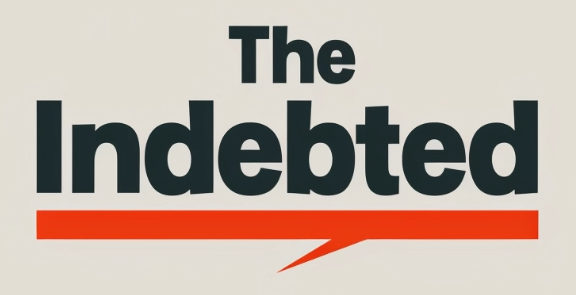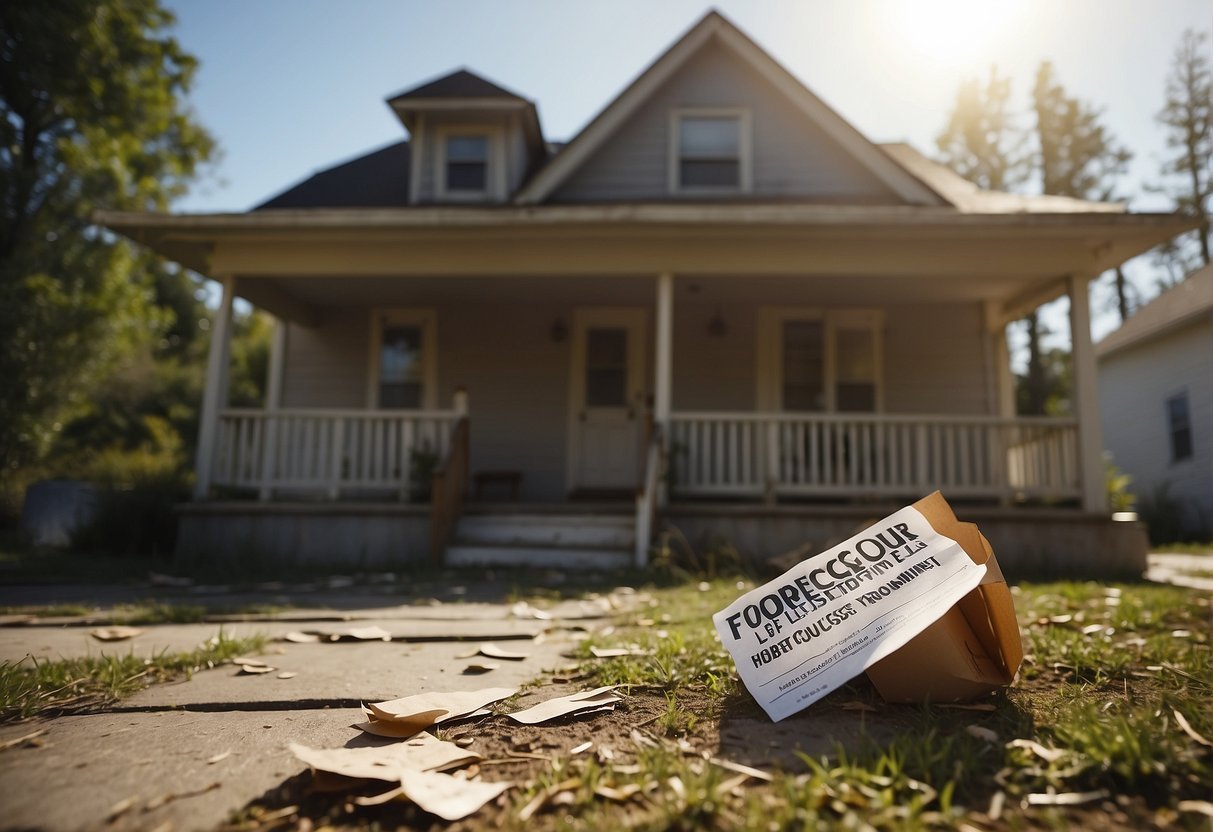Foreclosure is a legal process in which a lender takes possession of a property from a homeowner who has stopped making payments on their mortgage. Foreclosure can have a significant impact on your finances and credit score, making it difficult to obtain loans or credit in the future. In this article, I will discuss the impact of foreclosure on your finances and provide tips on how to avoid it.
Foreclosure can have a significant impact on your finances. Not only can it result in the loss of your home, but it can also damage your credit score. According to Experian, a foreclosure can stay on your credit report for up to seven years, making it difficult to obtain loans or credit in the future. This can affect your ability to buy a car, rent an apartment, or even get a job.
Fortunately, there are steps you can take to avoid foreclosure. If you are struggling to make your mortgage payments, you should reach out to your lender as soon as possible. Many lenders offer programs to help homeowners who are experiencing financial hardship, such as loan modifications or forbearance. By working with your lender, you may be able to avoid foreclosure and keep your home.
Understanding Foreclosure and Its Effects on Finances
As a homeowner, it’s important to understand the impact of foreclosure on your finances. Foreclosure is a legal process that occurs when a borrower fails to make their mortgage payments, leading to the lender repossessing the property. Foreclosure can have a significant impact on your credit score, making it difficult to obtain credit in the future. In this section, I will explain the foreclosure process and how it can impact your finances.
The Foreclosure Process Explained
The foreclosure process can vary depending on the state you live in. In general, there are two types of foreclosure: judicial foreclosure and nonjudicial foreclosure. Judicial foreclosure requires the lender to file a lawsuit against the borrower, while nonjudicial foreclosure does not require court intervention.
The foreclosure process typically begins with a notice of default. This is a formal document that notifies the borrower that they are in default of their mortgage payments and that legal action may be taken if they do not bring their payments up to date. After receiving a notice of default, the borrower has a certain amount of time to bring their payments up to date or face foreclosure.
If the borrower fails to bring their payments up to date, the lender can initiate the foreclosure process. This can include selling the property at a public auction or taking possession of the property. In some cases, the lender may also pursue a deficiency judgment, which is a court order requiring the borrower to pay the difference between the sale price of the property and the amount owed on the mortgage.
How Foreclosure Impacts Credit and Borrowing
Foreclosure can have a significant impact on your credit score. A foreclosure will remain on your credit report for up to seven years, making it difficult to obtain credit in the future. In addition, a foreclosure can lower your credit score by up to 300 points, depending on your credit history.
When you apply for credit in the future, lenders will see that you have a foreclosure on your credit report. This can make it difficult to obtain credit, as lenders may view you as a high-risk borrower. In addition, you may be required to pay higher interest rates or put down a larger down payment to obtain credit.
It’s important to note that foreclosure is not the only factor that can impact your credit score. Late payments, default, and bankruptcy can also have a significant impact on your credit score. To avoid foreclosure and protect your credit score, it’s important to make your mortgage payments on time and communicate with your lender if you are experiencing financial difficulties.
In conclusion, foreclosure can have a significant impact on your finances, including your credit score and ability to obtain credit in the future. By understanding the foreclosure process and its impact on your finances, you can take steps to avoid foreclosure and protect your financial future.
Strategic Financial Planning to Prevent Foreclosure
As a homeowner, it is important to have a strategic financial plan in place to prevent foreclosure. By implementing a few simple strategies, you can manage your mortgage payments and avoid financial hardships that may lead to foreclosure.
Budgeting to Manage Mortgage Payments
One of the most important steps in preventing foreclosure is budgeting. By creating a budget, you can manage your mortgage payments and ensure that you have enough money to cover your other expenses. Start by tracking your income and expenses, and then create a budget that includes your mortgage payment. Be sure to include all of your monthly expenses, such as utilities, groceries, and transportation costs.
To help manage your mortgage payments, consider setting up automatic payments. This will ensure that your mortgage payment is always made on time, and you won’t have to worry about missing a payment. You can also consider refinancing your mortgage to lower your monthly payments and make them more manageable.
Recognizing and Addressing Financial Hardships
Financial hardships can happen to anyone, and it’s important to recognize and address them before they lead to foreclosure. If you experience a job loss, illness, or natural disaster that affects your ability to make your mortgage payments, it’s important to take action right away.
One option is to contact your mortgage lender and explain your situation. They may be able to offer you a forbearance or loan modification to help you avoid foreclosure. You can also consider selling your home or renting it out to generate income and cover your mortgage payments.
If you experience a temporary setback, such as a disability or a temporary money setback, it’s important to have an emergency fund in place to help cover your expenses. By having a financial cushion, you can avoid falling behind on your mortgage payments and prevent foreclosure.
In summary, strategic financial planning is crucial to prevent foreclosure. By budgeting and managing your mortgage payments, and recognizing and addressing financial hardships, you can avoid foreclosure and protect your finances.
Working with Lenders to Avoid Foreclosure
If you’re behind on your mortgage payments, it’s important to take action to avoid foreclosure. One option is to work with your lender to find a solution that works for both parties. Here are some options to consider:
Loan Modification and Forbearance Options
A loan modification is a permanent change to the terms of your mortgage, such as a reduction in the interest rate or an extension of the loan term. This can make your monthly payments more affordable and help you avoid foreclosure. To qualify for a loan modification, you’ll typically need to show that you’re experiencing a financial hardship, such as a job loss or a medical emergency.
Forbearance is a temporary pause in your mortgage payments. This can be a good option if you’re experiencing a short-term financial hardship, such as a temporary reduction in income. During the forbearance period, you won’t be required to make your monthly payments, but interest will continue to accrue on your loan.
Understanding Refinancing and Repayment Plans
Refinancing is the process of replacing your current mortgage with a new one that has different terms, such as a lower interest rate or a longer loan term. This can help you lower your monthly payments and avoid foreclosure. However, refinancing can be difficult if you have a low credit score or a high debt-to-income ratio.
A repayment plan is an agreement with your mortgage lender to repay your missed payments over time. This can be a good option if you’re able to make your regular monthly payments but can’t afford to make up the missed payments all at once.
When working with your mortgage servicer or lender, it’s important to be honest about your financial situation and to provide any documentation they request. They may be able to offer you additional options or programs to help you avoid foreclosure. Remember, foreclosure can have a significant impact on your finances and credit score, so it’s important to take action as soon as possible.
Alternative Solutions to Foreclosure
If you are struggling to keep up with your mortgage payments, you may be at risk of foreclosure. Foreclosure can have a significant impact on your finances and credit score, which is why it’s essential to explore alternative solutions.
Selling Your Home: Short Sale and Deed in Lieu
One of the most common alternatives to foreclosure is selling your home. If you owe more on your mortgage than your home is worth, a short sale may be an option. A short sale is when you sell your home for less than the amount you owe on your mortgage. The lender will typically forgive the remaining balance.
Another option is a deed in lieu of foreclosure. This is when you voluntarily transfer ownership of your home to the lender in exchange for being released from your mortgage obligation. This can be a good option if you cannot sell your home through a short sale.
Both a short sale and a deed in lieu of foreclosure can have an impact on your credit score, but it’s typically less severe than a foreclosure.
Legal Alternatives: Bankruptcy and Right of Redemption
Bankruptcy is another alternative to foreclosure. Filing for bankruptcy can help you keep your home by restructuring your debt and creating a payment plan. However, bankruptcy should be a last resort, as it can have a significant impact on your credit score.
Another legal alternative to foreclosure is the right of redemption. This is when you pay off the full amount owed on your mortgage, including any fees and interest, to reclaim your home. The right of redemption is not available in all states, and it can be expensive.
It’s essential to explore all your options before deciding on an alternative to foreclosure. You should consult with a financial advisor or a housing counselor to help you make an informed decision.
Seeking Help from Professionals and Avoiding Scams
When facing foreclosure, it’s important to seek help from professionals to understand your options and determine the best course of action to avoid it. Here are some tips to keep in mind:
The Role of Housing Counselors and Legal Advisors
A housing counselor can help you understand the legal process and your options for avoiding foreclosure. The Department of Housing and Urban Development (HUD) offers a list of HUD-approved housing counseling agencies that can provide free or low-cost counseling services. These counselors can help you complete a loss mitigation application and work with your lender to find a solution that works for you.
If you’re facing legal action, it’s important to work with a qualified legal advisor who can help you navigate the legal process and protect your rights. You can find a list of legal aid providers on the HUD website.
Identifying and Protecting Against Foreclosure Scams
Unfortunately, there are many scams out there that prey on homeowners facing foreclosure. These scams can take many forms, such as companies that promise to stop foreclosure for a fee, or individuals who offer to buy your home for cash.
To protect yourself from foreclosure scams, it’s important to be knowledgeable and vigilant. The HUD website offers a helpful PDF handout that outlines common foreclosure scams and how to avoid them. Here are some general tips to keep in mind:
- Be wary of companies that charge upfront fees for foreclosure help. Legitimate housing counselors and legal advisors will not charge you upfront fees.
- Do not sign over the title to your home to anyone without consulting a legal advisor.
- Be cautious of individuals who pressure you to sign documents without fully understanding their contents.
- Do not make mortgage payments to anyone other than your lender or loan servicer.
- Be wary of companies that claim to be affiliated with the government or offer a “government-approved” solution to foreclosure.





